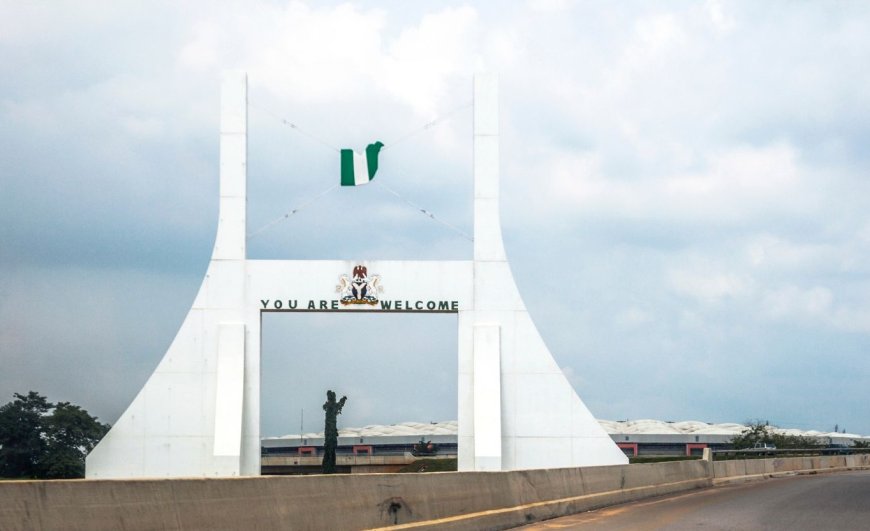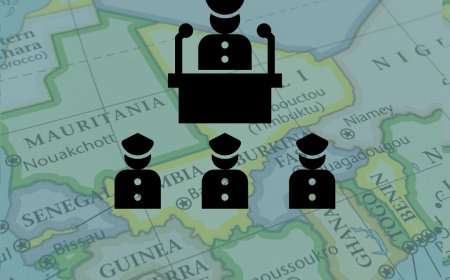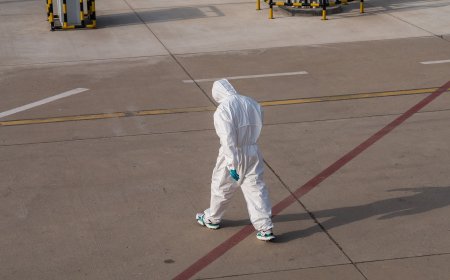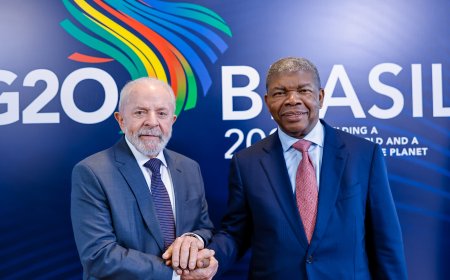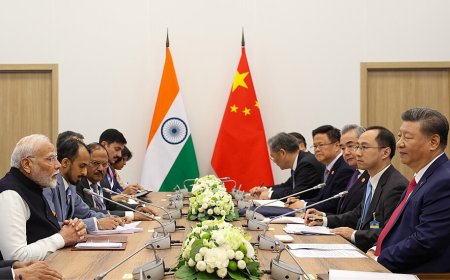This article is part of a series on the Nigerian 2023 Elections. The series is edited by Serwah Prempeh and Dr. Olumide Abimbola.
Summary
- Nigeria’s border closure saw Nigeria caught between its desire for a strong economy with solid agricultural development and a good relationship with its neighbours.
- The impact of Nigeria’s border closure on informal businesses points to the larger impact of the policy on household incomes across west Africa.
- Nigeria’s oil sector shows how domestic challenges, such as insecurity and governance, impact the country’s need for foreign investment.
- Nigeria can benefit even more from the African Continental Free Trade Agreement (AfCFTA) if the country addresses its productivity challenges.
- The economic downturn in Nigeria ensures that migration will continue to be a challenge for the country and diaspora relations will remain a major issue in the coming years.
Background
The major focus areas of Nigeria’s foreign policy in recent years have included pursuing regional and sub-regional integration as a member of the Economic Community of West African States (ECOWAS) and the African Union while seeking to attract foreign direct investment. Nigeria’s foreign policy, like other countries’ foreign policies, ostensibly bolsters the country’s interests, whether it is supporting UN resolutions that benefit the country or signing partnership agreements with countries in ways that speak to Nigeria’s domestic goals. These focus areas have implications along various themes that cannot be covered fully here.
Of Buhari’s 81 campaign promises ahead of his 2015 victory, just two explicitly bordered on foreign relations. One concerned economic stability for the ECOWAS nations, specifically expressing support for a strong, close and frank relationship with West Africa, South Africa, other African countries, the United Kingdom, the United States of America, and Canada. The other expressed support for the emergence of an ECOWAS currency by 2020 under Nigeria’s guidance and leadership, something that has still not happened. In what was likely a reflection of the increasingly dire economic situation the country had plunged into under President Buhari’s presidency, the promises he made for his second term did not include any foreign policy-related points at all.
Focusing on trade relations and the diaspora, this article examines Nigeria’s foreign policy during President Buhari’s time in office. Specifically, this paper explores the ways the country’s foreign policy will contribute to Nigeria’s overall economic trajectory in the coming years. Foreign policy is never a major talking point in Nigeria’s elections, but effective management of the relationship with its neighbouring countries and international partners is a factor that drives trade relations, the rate of investment into the country, improvements in the country’s internal security, and much more besides. As will be illustrated in this article, the government’s actions over the course of the eight years of President Buhari’s presidency facilitate an understanding of how the foreign partnership is crucial to many other areas affecting Nigeria’s socio-economic standing. But they also reveal an inability to achieve coherence between its foreign policy considerations and domestic policy instincts. The examples considered in this article illustrate how President Buhari’s foreign relations portray a country that is constantly getting in its own way.
Bad borders and good neighbours
The country’s closure of its land borders with neighbours Benin Republic, Chad, Niger, and Cameroon in August 2019 demonstrated a clash between Nigeria’s desire for a strong economy with solid agricultural development and good relationships with its neighbours. The rationale for the border closure was that it would curb the smuggling of drugs, illegal arms, and imported agricultural products into the country. The measure was also to stop the smuggling of refined petroleum products out of the country. Indeed, much of the rice imports into the Benin Republic are destined for Nigeria’s shores, and the smuggling of rice and other agricultural products from the Seme border shared with the Benin Republic into Nigeria has long been cited as a problem. Benin Republic’s reported trade with Nigeria accounted for only about 6 per cent of Benin’s exports and 2 per cent of Benin’s imports in 2015-17, a pointer for how much of that trade into Nigeria is informal in nature.
However, in targeting smuggling and illegal activity through the closing of land borders, the Nigerian government seemed happy to take the bad with the good. The border reopened in December 2020, and while President Buhari contended that the policy was a success, a closer look paints a more damning picture. The Nigerian government noted the reduction in smuggling activities across Nigeria’s various borders and claimed improvement in internal security as a result of the measure. At a Senate and House of Representatives joint committee on Finance and National Planning in October 2019, the National Customs Services claimed that Nigerian trade revenues had soared to a 30 per cent increase from its previous level of at least 4.7 billion naira (NGN) daily (EUR ~13.84 million, equivalent to EUR ~415.2 million a month)1 in September following the border closure due to importers being forced to use Nigeria’s ports. But, as a fact-check uncovered, the customs service was found to have generated less; only NGN 115 billion (~338.64 million euros) in the whole of September 2019.
Rice smuggling did slow down due to the border closure, and local manufacturers saw a 10 per cent increase in sales in Nigeria of their finished goods. At the same time, local exports from Nigerian manufacturers into neighbouring countries suffered because manufacturers could not legally bring in raw materials to finish products in Nigeria or cross land borders to affordably reach their markets, affecting their profit margins and their ability to keep their staff. The country’s organized private sector decried the border closure’s impact on legal businesses, citing loss of access to the market, disruption of supply chains, and rising inflation. According to the Guardian Nigeria Newspaper, Nigeria imported NGN 173.84 billion (~ EUR 512.8 million at the time) worth of goods and services from its ECOWAS neighbours and exported NGN 500.8 billion (~ EUR 1.48 billion) worth of goods to neighbouring countries in 2019, compared to NGN 1.04 trillion (~ EUR 2.96 billion) exports and NGN 74.7 billion (~ EUR 212.82 million) in imports in 2018. The reduced supply of agricultural products – be it through legal trade or smuggling – as a result of the border closure also led to a sharp rise in food inflation in Nigeria throughout the closure, which had risen by 13.51 per cent in September 2019, by 14.85 per cent by January 2020, and by 19.56 per cent by December 2020 when the pain from the border closure was compounded by the COVID-19 pandemic.
The impact of border closure on informal traders in the region is an indicator of the impact of the border closure on Nigeria’s neighbours’ local economies. This effect arises because the informal sector in West Africa accounts for approximately 50 per cent of GDP and 90 per cent of employment. Traders from both Nigeria and its neighbouring countries found it difficult to trade or earn a living. Not all informal trade is illegal and much cross-border trade is conducted by traders in informal employment. As such, closing crucial land borders also dealt a blow to household incomes in ways that are hard to calculate for want of data, as well as a blow to tax revenues in countries considerably smaller than Nigeria, one that worsened in 2020 with the COVID-19 pandemic. And these effects were all being felt while the key ECOWAS agreement guaranteeing freedom of movement across the region was being violated. Given a regional environment where Nigeria needs close relationships with its neighbours to tackle everything from Lake Chad-related climate change issues to shared internal security challenges, creating economic hardship for everyone around you is hardly a good way to announce oneself as a trustworthy regional partner.
The border closure was not the only trade-related issue that saw a clash between Nigeria’s local considerations and regional aspirations. Though intra-Africa trade is one of Nigeria’s main foreign policy goals, the country was one of the last to ratify the African Continental Free Trade Agreement (AfCFTA). The delay in signing the AfCFTA saw great support from local traders and manufacturers in Nigeria, represented by such entities as the Manufacturers Association of Nigeria (MAN) and the National Association of Nigerian Traders (NANTS), who were concerned that Nigeria’s low level of productivity and high cost of doing business would make their goods uncompetitive in a free market. These concerns were not completely unfounded. Between inadequate mechanisation, annual flooding across Nigeria, and creeping desertification in the northernmost regions, among other issues, much of Nigeria’s agriculture is not as productive as it could be. The low levels of access to finance and irregular electricity access also make productivity a challenge for the small and medium-sized manufacturers that make up the bulk of the country’s business owners.
Nigeria must address these internal challenges to take full advantage of the opportunities the AfCFTA offers. But these issues do not mean that the trade agreement currently holds no promise for the country. Even if the country is disadvantaged in the production of goods, its service sector currently contributes 46 per cent of the country’s overall GDP and employs 53.1 per cent of Nigerians. With strong growth in sectors such as telecommunications and ICT, as well as in financial services, the country’s service sector could be well poised to take advantage of Article 20 of the AfCFTA, which accords to services and service suppliers from any other country treatment no less favourable than that accorded to each country’s similar services and service suppliers. As Taiwo Oyedele of PwC Africa notes, Nigeria could also be well positioned to export the capacity of both formal and informal service suppliers, or even to secure Intellectual Property across Africa for Nigeria’s vast cultural output in film and music.
Given these examples, one would be forgiven for mistaking President Buhari’s foreign policy approach as one that cares little for regional integration. There is, however, evidence that suggests that this is not true. In January 2020, with the border closure still roiling the atmosphere, the Minister of Foreign Affairs, Geoffrey Onyeama affirmed that, as an ECOWAS member, the country is fully committed to sub-regional integration. Nigeria has also worked with other African nations on mutually beneficial issues of economic development and security. The Presidential Fertilizer Initiative comes to mind, where the Nigerian Government signed an agreement with Morocco for phosphate supplies, even as the Nigerian government played a key role in blocking the north African country from joining ECOWAS. The Nigerian government also led the reorganising of the Joint Multinational Task Force in 2015 to pool efforts against Islamist violence in the Lake Chad region, even if with limited success on the ground. Nigeria is also far and away the largest African contributor to ECOWAS and the African Union. None of these things are the actions of a country that sees no use in maintaining relationships in Africa.
Domestic policy drives foreign investment
Under President Buhari, Nigeria has also enjoyed strong trade relations with the European Union (EU) but has demanded more. The country’s export volumes with the EU ranged between NGN 7 trillion and over NGN 8 trillion (between EUR ~15.6 and EUR ~17.82 billion) between 2018 and 2021, except for a notable dip in the year of the pandemic shutdown of 2020. The country has also been able to leverage the EU’s desire to reverse youth migration from the country into an approach for more trade agreements and investments to support Nigeria’s economic development goals better. The President also expressed that his government demurred on signing several economic partnership agreements with the EU due to the agricultural subsidies in Europe. He opined that these subsidies artificially depreciated African food exports into European countries, thereby making trade more unfair.
However, Nigeria’s need to attract foreign direct investment was also beleaguered by the country’s domestic challenges, as its flailing oil industry clearly shows. The country’s rate of daily production in the oil sector has steadily declined from 1.49 million barrels per day in 2020, to 1.31 million in 2021 and 1.14 million in 2022. Increasing technical production requires drilling more wells, finding more reserves, and installing more infrastructure, all of which needs to be done with added investment. Oil production has been declining since 2012, and the country has not put forward any new bidding process to open up exploration and development of new fields since 2003. On the contrary, major oil investors in Nigeria have sold off their assets, withdrawing investment at a vital time for the country, due in part to increasing interests in clean energy but also as a result of a harsher business environment arising from the increased rate of pipeline vandalism and bunkering. The rate of vandalism – approximately 20 per cent of Nigeria’s daily oil production is estimated to be stolen – hints at some connivance with security agencies: It is hard to imagine that level of asset insecurity solely due to the cunning of vandals. This state of affairs has made it difficult for Nigeria to see a decent inflow of investment, even with oil prices being high. Additionally, the country’s age-old problems, such as corruption and poor oil sector governance, have created a situation where much-needed foreign investment will be slow to arrive without Nigeria fixing its domestic challenges.
As Nigeria’s local economic outlook becomes grimmer and grimmer, Nigerian professionals are seeking greener pastures beyond the country’s shores, making diaspora relations increasingly important for more reasons than simply remittances to families back home. A politically engaged diaspora has always meant that the political aspirants in Nigeria have taken time to campaign in foreign cities such as London and Washington, DC, with huge Nigerian populations. However, in recent years, there have been signs that the political imagination of Nigerians in the diaspora has broadened. This was especially evident during the #EndSARS protests, where Nigerians in the diaspora held marches in solidarity with fellow Nigerians across Nigeria, pressuring Nigerian embassies and driving international media attention to protesters’ demands. The signing of the Diaspora Act by President Buhari established the Nigerians in Diaspora Commission (NIDCOM) in May 2019, run by the erstwhile Senior Special Assistant to President Buhari on Foreign Affairs and Diaspora Relations Mrs. Abike Dabiri, recognising the importance of a dedicated effort towards addressing specific issues facing Nigeria’s vast diaspora. This recognition has so far included intervening when Nigerians were profiled and harmed during a spate of xenophobic attacks in South Africa in 2019, coordinating with European and other African countries to remove Nigerian students from harm’s way in the early days of Russian aggression in Ukraine, assisting young Nigerians who have experienced trafficking, and providing legal assistance to Nigerians profiled and arrested on trips abroad.
NIDCOM, however, does not seem to have the ability to pre-empt or forestall challenges. The ability to act on foreign policy objectives, such as improving relationships with countries like South Africa or improving protection for Nigerians who live abroad to limit the kinds of abuses they experience, remains under the purview of the Ministry of Foreign Affairs, of which the Commission is just a part. Instead of a systematic approach to issues affecting Nigerians in the diaspora, what Nigerians get instead is jeering on the part of the NIDCOM Chairperson that reinforces the very stereotypes that make life hard for ordinary Nigerians abroad and at home. The Commission also seems powerless in the face of the long, unpredictable delays and wanton bribery that has long been the complaint of its diaspora when trying to get Nigerian passports abroad. The Commission also has as its mandate to leverage diaspora resources for national development, which is frankly beyond its power; indeed, diaspora remittances have always been considerable and are in no way directly connected to NIDCOM’s work. Unfortunately, Nigeria’s worsening socio-economic outlook and the economic migration in which it results will continue to impact how Nigeria is seen and will sadly mean that NIDCOM will probably continue to have to execute damage control for the foreseeable future. If for no other reason than this, NIDCOM Director Hon. Abike Dabiri should consider abstaining from incendiary social media comments to ordinary Nigerians, for which she has become known. There is plenty to be angry about, and none of it is the fault of ordinary Nigerians with whom she seems to enjoy trading barbs.
Beyond the coming elections
Domestic concerns are dominating all current electoral conversations in Nigeria, so issues concerning Nigeria’s position in the world have not been hot buttons. Indeed, ethnic and religious identities dominate the conversations and will likely drive much of voter behaviour. This lopsidedness is long overdue for change because electoral fortunes not being tied to results of one’s leadership will continue to mean that political parties have no reason to present better quality leaders. Further, the current state of affairs holds little incentive for politicians to act more in the interest of ordinary Nigerians. Even so, all current presidential frontrunners have weighed in on their vision for foreign policy in the years to come. All Progressives Congress candidate Chief Bola Tinubu, who is looking to take over from Buhari, spoke at Chatham House in December 2022 and applauded the outcomes of COP 27 while stressing the importance of working with ECOWAS on matters of regional economic development and security. Atiku Abubakar of the People’s Democratic Party has explicitly decried the border closures under President Buhari and extolled the virtues of collaboration with the EU for national democracy, as well as with other African countries for regional security. For his part, the Labor Party presidential candidate Mr. Peter Obi in his campaign manifesto pledges to “conduct an Afro-centric diplomacy that protects the rights of Nigerian citizens abroad and advances the economic interests of Nigerians and Nigerian businesses in a changing world”. Of all the candidates, only Peter Obi’s manifesto goes into some detail in its plans for foreign relations, and these plans skew heavily towards the economic and namecheck the African Peer Review Mechanisms and the AfCFTA. As is always the case with presidential candidates, and as it clearly was with President Buhari in the past, campaign promises do not necessarily imply action. Even the pilgrimage to Chatham House, which is the wont of every Nigerian politician seeking to position himself nationally, seems entirely for appearances: To project seriousness on an international stage rather than to make commitments that will be adhered to.
For the benefit of Nigeria and the countries surrounding it, the next president needs to present an agenda that marries domestic and external concerns in a way that coheres into a thoughtful, pragmatic whole. The next time a president says he wants to champion sub-regional and regional integration, he – and it will be a ‘he’ in the coming elections – should be held accountable on how he sees Nigeria’s place in Africa, Nigerians place in the world, and on what he hopes to do about his view at home and abroad.
- These exchange rates come from the Central Bank of Nigeria website, which has historical records of exchange rates. It is, however, worth noting that Nigeria has an official bank rate that is accessible to fewer people and under strict conditions and a black-market rate at which Bureau de Change operators sell foreign currency to buyers. The CBN keeps records only of the former, which is more regulated than the latter.
About the Author
Saratu Abiola is a writer and communications strategist with over a decade's experience in the international development sector in Nigeria and around Africa. Her interests span human rights, technology, politics and popular culture. She is based in Lagos.
